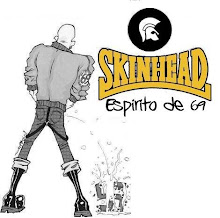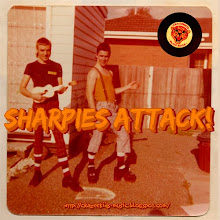
Posso dizer que o que chamou minha atenção no refrigerante alemão Bionade, a princípio, foi seu logo, que envolve o famoso target da RAF, símbolo clássico da subcultura Mod. Porém, ao ir mais a fundo na pesquisa, descobri um fato curiosíssimo: trata-se do primeiro refrigerante orgânico da história.
Criado na região da Bavária, foi ideia de um ex-empregado, e agora dono, de uma cervejaria artesanal, Dieter Leipold. Este senhor, a fim de salvar a companhia, que pertencia a uma família com quem nutria laços de amizade, teve a ideia de fazer uma bebida não alcoólica com os mesmos processos e padrões usados para se fazer cerveja. Para tanto, precisou descobrir uma forma de fazer com que o processo de fermentação, que geralmente transforma açúcar em álcool, passasse a formar ácido glucônico, que seria utilizado para fermentar o açúcar, o que consumiu 1,5 milhão de Euros. Todos os ingredientes do refresco, inclusive os utilizados para dar sabor, são orgânicos.
É interessante notar que o refrigerante vem ganhando força na Europa, após ter sido disseminado na Alemanha por meio de diversas táticas de marketing e ter tido propostas de compra por parte de grandes companhias, como Coca-Cola. Entre as estratégias empregadas para aumentar as vendas está até o fato de a bebida ser vendida em garrafas similares às de cerveja longneck e o suposto fato de o produto ser menos maléfico à saúde do que outros similares. Também ficou conhecida no continente europeu como sendo a bebida oficial das pessoas politicamente e ecologicamente engajadas, justamente por defender a manutenção de práticas corretas em relação à sociedade e ao meio-ambiente.
Atualmente, o refrigerante já pode ser encontrado em países como Bélgica, Luxemburgo, Finlândia, Estônia, França, Itália, Irlanda, Japão, Holanda, Noruega, Áustria, Rússia, Suécia, Espanha, Portugal e Estados Unidos.
Bionade, a german soft drink, caught up my attention when I was surfing the web; mostly because of its logo, where the famous Royal Air Force target, a classic simbol of the Mod subculture can be seen. However, when I searched more about the brand, found out a very curious fact: it is the first organic soft drink in History.
Created in the German region of Bavaria, from the idea of an ex-employee, and now owner, of a small brewery called Dieter Leipold. This gentleman, hoping to save the company, that belonged to a family of friends, thought of creating a non-alcoholic drink with the same standards and process used to make beer. In order to achieve this, he needed do find out a way of making the brewing process, which usually transforms sugar in alcohol, to start transforming sugar in gluconic acid, that would be used to ferment the sugar. This research costed 1.5 Million Euros. All of the ingredients used in the process, including the flavouring ones, are organic.
It should be noticed that the beverage has been gaining space in the European market, after taking over Germany with the help of different marketing strategies. Of all the tatics employed to raise the companies profit, is the form of the bottle, very similar to the classic beer longneck and the alleged fact that the product is healthier than other soft drinks. The company is also known in Europe as the drink of anti-globalization activists and ecologists, as it defends iniciatives considered good towards society and the environment.
Nowadays, the soft drink can be found in countries like Belgium, Luxembourg, Finland, Estônia, France, Italy, Ireland, Japan, Netherlands, Norway, Austria, Russia, Sweden, Spain, Portugal, and the United States.































.jpg)



Nenhum comentário:
Postar um comentário